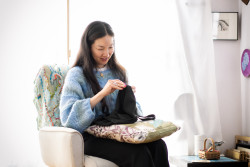
October 8, 2009
Let’s Talk About You-Know-What
Japan’s double standards about sex have got to change
By Metropolis
Originally published on metropolis.co.jp on October 2009
I have a friend who always talks about cabaret clubs (kyabakura) and the sex industry (fuzoku). He’ll regale me with stories about how he found a cute girl at this club, how he had a terrible experience at that “soapland,” and so on. I thought at first that this was just his thing, but when I asked around my male friends, I was surprised by how many of them were really into this stuff. Even the people you’d swear never went to sex shops turned out to really like them.
You don’t have to look hard to find examples of the sex industry in Japan. Every convenience store has a generous stock of pornography, often right next to the rack of children’s comics. Cabaret clubs are a huge industry, and there are countless kinds of bars that provide so-called “false romance” to paying customers. You can even have girls clean your ears for you.
You might think Japanese people’s openness about sexuality is limited to their private lives, but in fact it can be seen in the workplace as well. Many of my female friends have been harassed by their male coworkers, mostly at nomikai parties. One told me her boss had asked her if she likes rough sex or soft sex. Another had to choose who she would sleep with in her team if she had to. Going to cabaret clubs and sex shops with male co-workers is also an established part of Japanese corporate culture, promoting bonding through the sharing of secrets—though, needless to say, women aren’t privy to the experience.
It may seem like Japanese people are simply more open about sexuality than their Western counterparts, but it’s actually a lot more complicated than that. In 2005, the Sankei Shimbun reported that Japanese sex education was too visual and “realistic,” and that it would promote early sexual activity. The education ministry, meanwhile, has received numerous complaints from conservative parents about the use of graphic material such as condoms in classes. However, it’s rare for parents to give their children a proper sex education at home because it’s “embarrassing” to talk about the subject with their kids.
When I tell Japanese people that I study sexuality, they usually gasp and stop asking further questions. It’s clear that many of them see sex as a taboo topic.
What is going on here? Sometimes people behave as if sex is unspeakably embarrassing, yet at other times they are totally open about it. Moreover, why is there such a huge sexual disparity between men and women?

Illustration by Shane Busato
When we look back through Japanese history, it’s clear that things haven’t always been this way. During the Edo period, men and women alike would look at shunga, a form of sexually explicit images that depict heterosexual and homosexual relationships, but also sex with animals and even vegetables. Shunga images were an integral part of people’s lives, bought not only for fun, but also for educational purposes. Meanwhile, homosexual romances were frequently depicted in kabuki plays, which proved popular with all ages and sexes.
However, this openness gradually changed after the Meiji Restoration of 1868, as Japanese society grew increasingly Westernized and its system of morality, both sexual and otherwise, fell under the influence of Christianity. Of course, national traits that have been cultivated over centuries don’t change instantly. Instead, Japanese people came to a compromise, where on the surface they would see sex-related topics or activities as an embarrassing taboo, but inside they would enjoy them. The similarity with the well-known concepts of honne and tatemae—one’s real feelings and public front—is unmistakable.
This explains why sex shops don’t get exposed, even though prostitution is illegal. While many of these shops are essentially selling sex, it’s tacitly permitted because they claim that they are just massaging customers. On the surface, it’s platonic; inside, however, it’s anything but.
Another key point in understanding Japanese sexual morality is the patriarchy system. This can be traced back to 1898, when the ie (household) system law was enacted, putting in place a scheme that would last until 1947. This system was modeled on the hierarchies that had existed in samurai families, and reinforced male domination in Japanese families and society. Under the law, women were seen as men’s possessions and basically had no authority whatsoever, including over marriage, divorce and reproduction. The system provided a new source of sexual inequality between women and men.
If I were to say straight out that Japan’s sex culture should change, people would probably just dismiss me as an uppity feminist, or reply that this is all an inherent part of our culture. But look at the facts. We are the only developed country in the world where the number of new HIV cases is increasing each year. We have a worrying amount of abortions caused by unwanted pregnancies. And the inequality between men and women is still painfully apparent, due to entrenched standards of sexuality.
It’s fair to say that change is long overdue. But we need to start talking first.







